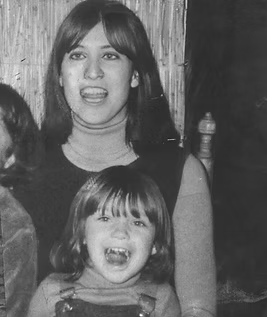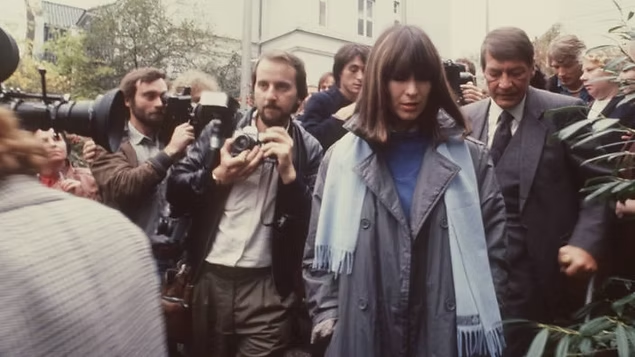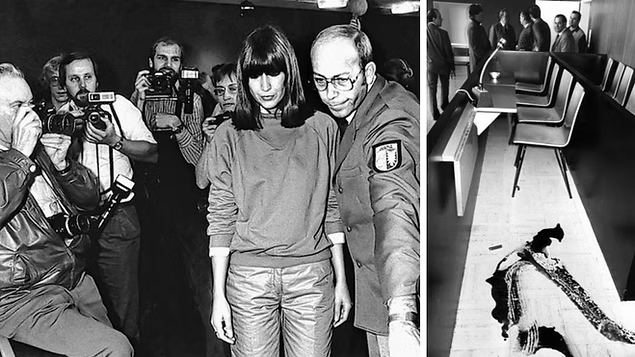A Story of Love, Loss, and a Mother’s Breaking Point
Marianne Bachmeier’s life is a haunting blend of hardship, heartache, and a desperate act that captured the attention of an entire nation. Her name became synonymous with one of Germany’s most controversial moments—an act of retaliation carried out in broad daylight, inside a courtroom, in front of cameras and the public.
To understand why she reached that point, we must look at her troubled past, her unimaginable grief, and the consequences that followed.

Early Life and the Struggles That Shaped Her
Born on 3 June 1950 in Sarstedt, Germany, Marianne grew up in a home marked by instability. Her father, a former wartime soldier, struggled to readjust to civilian life after the horrors of the front. The household was turbulent, and Marianne’s early years were shaped by emotional and financial hardship.
As she reached adulthood, challenges continued. In her early twenties, she had her first child, but the relationship ended, leaving her to raise the baby alone. Later, she entered another relationship and had two more children, hoping for stability at last. But fate had something devastating in store.

The Kidnapping and Murder of Anna Bachmeier
On 5 May 1980, Marianne’s bright and energetic seven-year-old daughter, Anna, was abducted on her way to school. The perpetrator was 35-year-old Klaus Grabowski, a convicted sex offender with a deeply disturbing history.

Living dangerously close to the Bachmeiers, Grabowski lured Anna into his home under the guise of showing her kittens. Once inside, he held her captive for several hours, subjecting her to terror before strangling her with his fiancée’s stockings.
He then placed Anna’s body in a cardboard box and dumped it near a canal, where it was later discovered. The horrific crime devastated Marianne and horrified the community.
The Courtroom Shooting: A Mother’s Act of Vengeance
The trial of Klaus Grabowski began in March 1981. Marianne attended the proceedings, forced to relive the brutal details of her daughter’s final moments. The emotional weight became unbearable.
On the third day of the trial, as Grabowski described what he had done, Marianne reached her breaking point. She had smuggled a small pistol into the courtroom. Rising from her seat, she fired seven shots at Grabowski, striking him in the back.
Witnesses described a chaotic scene. Judge Guenther Kroeger later recalled Marianne saying, “I wanted to kill him.” She reportedly added, “He killed my daughter… I wanted to shoot him in the face, but I shot him in the back… I hope he’s dead.”

Grabowski collapsed and died almost instantly. Marianne was arrested on the spot. Her actions ignited a fierce nationwide debate:
Was she a grieving mother failed by the system, or someone who had crossed the line into vigilantism?
A Nation Divided: Marianne’s Trial and Public Opinion
Marianne’s trial began in 1983. The facts were undisputed, she had shot and killed Grabowski. The question was why, and how the law should view her actions.

Marianne spoke openly about the overwhelming grief and helplessness that drove her to act. Eventually, the court convicted her of manslaughter, not murder, acknowledging the extreme emotional strain she had been under. She received a six-year sentence but served only three for good behavior.
Public reaction was sharply divided.
According to a survey by the Allensbach Institute:
- 28% felt her sentence was fair
- 27% believed it was too harsh
- 25% believed it was too lenient
German magazine Stern published multiple articles on her life and struggles. Marianne reportedly sold her story for approximately $158,000, money she used to pay her legal fees.
Life After Prison: Searching for Peace
After her release, Marianne sought distance from her past and the media attention that still followed her. She moved to Lagos, Nigeria, where she lived for several years before eventually settling in Italy. There, she lived quietly, far removed from the public spotlight.
In her later years, Marianne was diagnosed with pancreatic cancer. She returned to Germany for treatment and spent her remaining time in Lübeck.
On 17 September 1996, she passed away. She was laid to rest beside her daughter Anna.

A Legacy Marked by Pain and Controversy
The story of Marianne Bachmeier continues to provoke debate decades later. Many see her as a symbol of a mother’s unimaginable grief, a woman pushed beyond the brink by a system that failed to protect her child. Others view her act as a cautionary tale about the consequences of taking justice into one’s own hands.
What remains undeniable is this:
Marianne’s life was shaped by profound suffering, and her desperate act of vengeance continues to echo through history.
